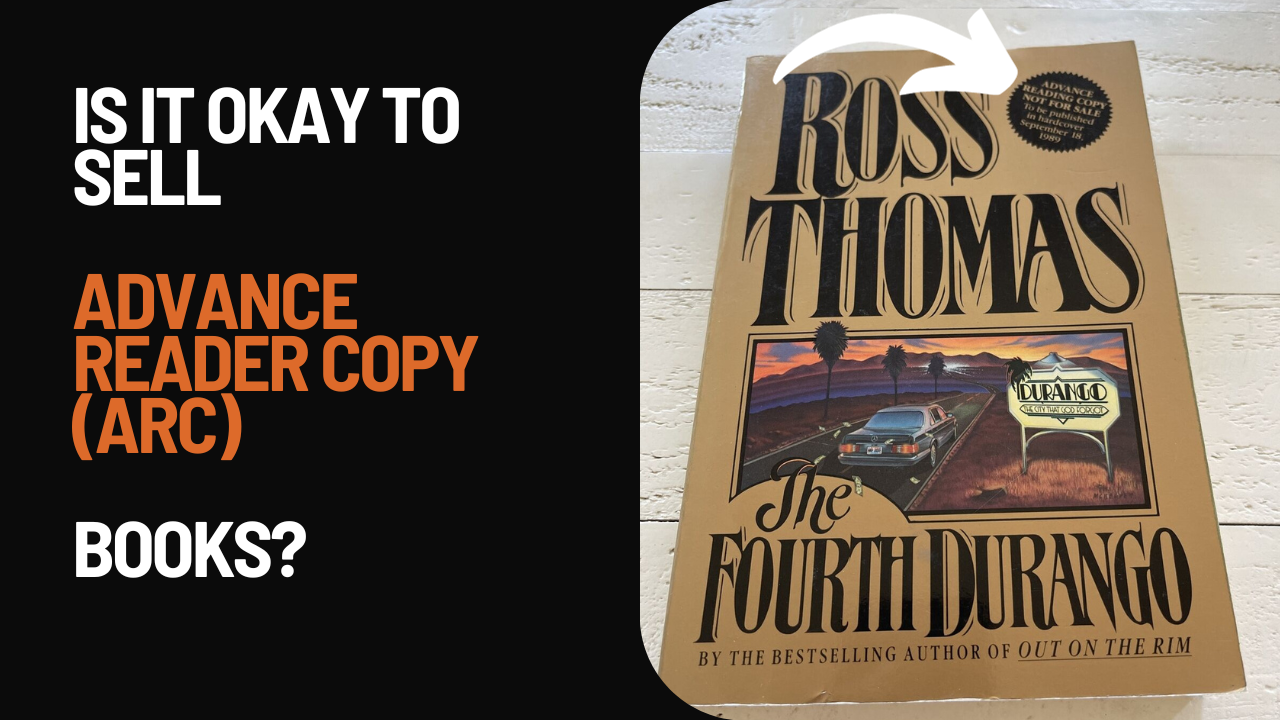Ever held an Advance Reader Copy (ARC) in your hands and thought, “Can I sell this?” or “Should I even be allowed to?” You’re not alone in this bookish dilemma. ARCs are like those exclusive, behind-the-scenes movie clips, but for the literary world. And just like those clips, there’s a buzz about whether sharing them (or in this case, selling them) is cool or not.
We’re about to dive into the ARC rabbit hole – from the whys to the why-nots and everything in between. Whether you’re a die-hard collector, an occasional reader, or someone who just stumbled upon an ARC, stick around; this is going to be an enlightening read!
🔔 Please subscribe to our Youtube channel
What’s an Advance Reader Copy (ARC) Book, Anyway?
So, what’s an ARC? Well, ARC stands for Advance Reader Copy. Also known as uncorrected proofs. Think of it as a sneak peek of an upcoming book. It’s like the rehearsal before the big play.
Yep, it might have some hiccups – maybe a typo here or a missing paragraph there. And it doesn’t dress to impress; its binding is usually pretty basic.
The Purpose and Benefits of Advance Reader Copies
ARCs wear a lot of hats in the book world.
Building the Buzz
Have you seen a cool quote on a book cover? That’s probably from an early reviewer who got their hands on an ARC. It’s a way to get people talking before the big release.
Catching Oops Moments
Despite being close to the final version, ARCs help catch those last-minute issues. Feedback from readers can be golden for publishers and authors.
Libraries and Bookstores Love ‘Em
Before deciding to put a book on their shelves, librarians and bookstore folks like to get a feel of it. ARCs help them decide.
Everyone Loves Freebies
Publishers love giving ARCs as prizes. It’s like giving a sneak peek of a blockbuster movie. It gets people excited and talking.
In a nutshell, ARCs are the cool backstage passes of the book world. They give a few lucky folks a behind-the-scenes look and play an important role before the book hits the spotlight.
To Sell or Not to Sell: The ARC Dilemma
So you stumbled upon a pre-release book version and wondered if it’s cool to sell it? Let’s talk about it.
We’ve come across a bunch of ARC books. We have found them in thrift stores, library sales, eBay, and other places. It’s tough to part with them, but the team usually does not sell them.
However, it looks like we missed one, which you can see in our store. It is a signed copy and the author wrote, “autographed for the trade.” I am actually thinking that in this case we can interpret it as a green light to sell! See the pictures below.
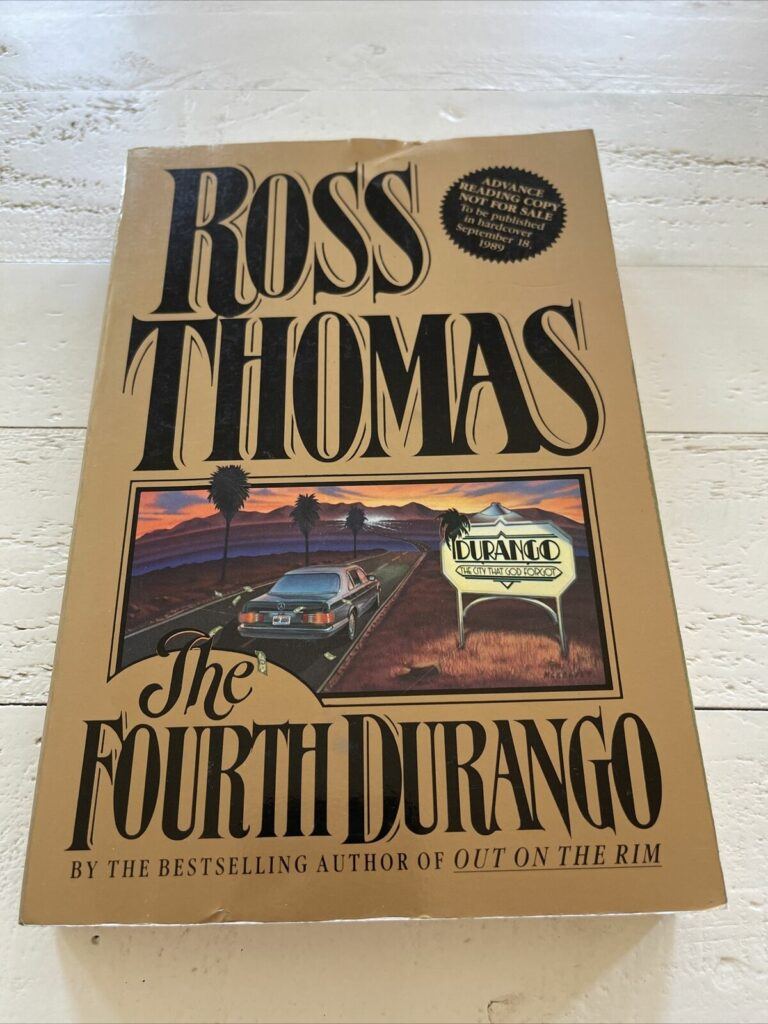
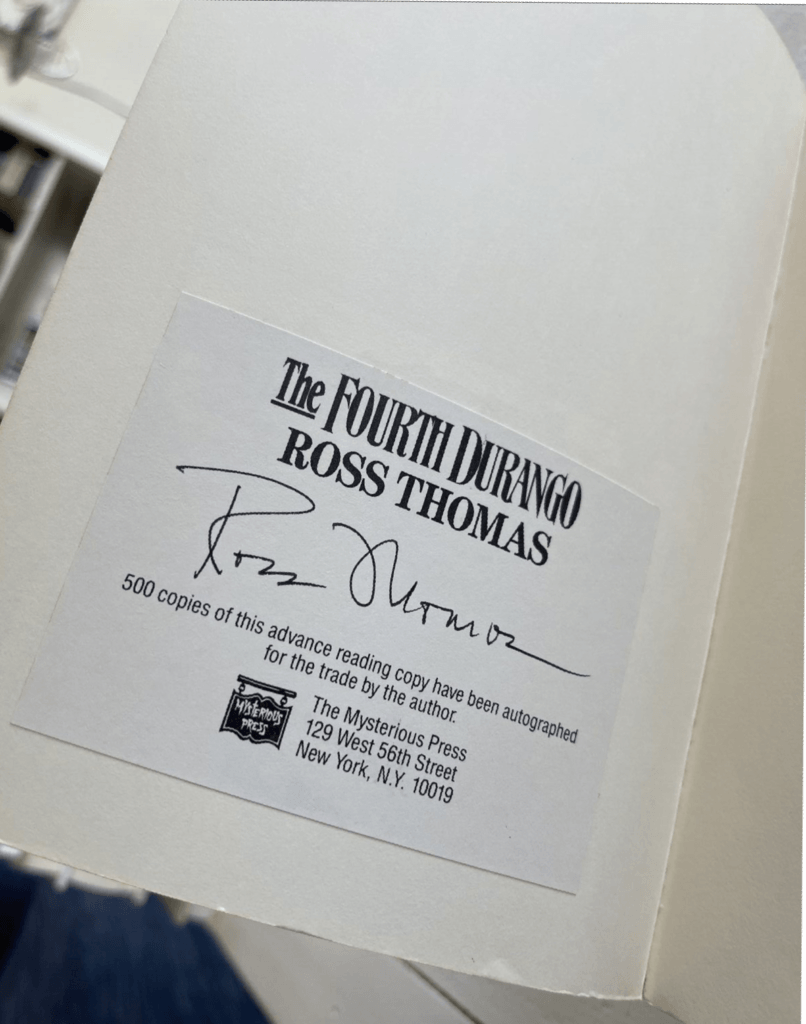
Some Believe: “Sell it if You Got it”
Some say, “Hey, it’s mine. Why not sell?”
- It’s Mine, Right? If you own something, you decide its fate—keep, toss, gift, or even sell.
- No Strings Attached: Most folks don’t sign any deal when getting an ARC. So, no promises broken.
- People Want ‘Em: If fans or collectors crave ARCs, they’ll find a way to get them.
Others Think: “Hold Up, That’s Not Cool”
Others argue it’s not quite right. Here’s their take:
- The ARC’s Purpose: They’re made for reviews and promo, not for making a quick buck.
- Not the Final Draft: ARCs might have typos. Selling them? Kinda like sharing a blooper reel.
- Stealing the Thunder: Selling ARCs early could overshadow the real book’s big debut.
What About That “Not-For-Resale” Sticker?
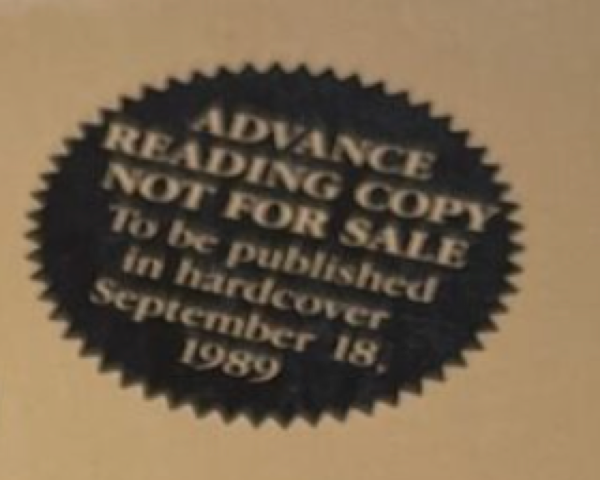
You’ve seen it, that sticker on many ARCs. Here’s the lowdown:
- Publisher’s Wish: It’s like a polite, “Please don’t sell this.”
- Is It Law? Legal-wise, it’s a bit murky. No contract? Resale rules get tricky. More on this below.
- Burning Bridges: Selling might ruffle feathers. Authors, publishers – they might not send more goodies your way.
So, the ARC selling saga? It’s a mix of “my stuff, my rules” and “let’s honor the book’s journey.”
Can You Really Sell That ARC? Let’s Talk Legal!
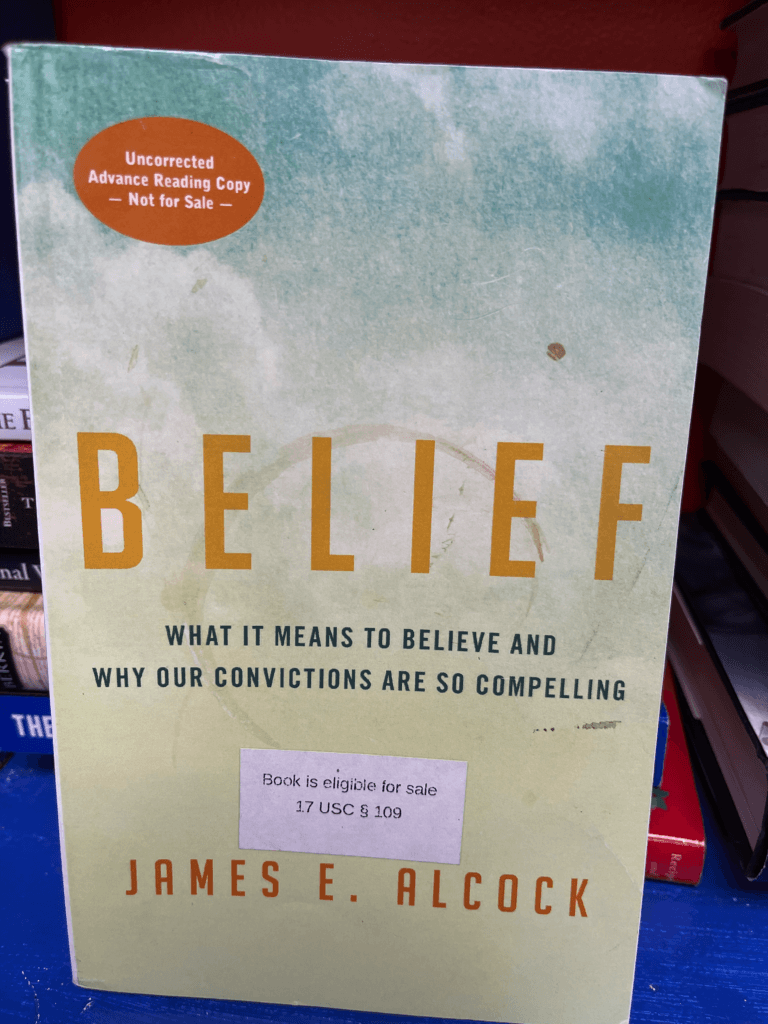
So, is it legal to sell ARCs? Let’s break it down.
“I Got It, So I Can Sell It, Right?”
Have you heard of the “doctrine of first sale” 17 U.S. Code § 109?
Today, while browsing a local thrift store, I came across a book that had a sticker attached to it.
It appears that the person who donated the book made a point to reference the “first sale doctrine” on this sticker.
Let’s explore the doctrine of first sale:
Doctrine of First Sale: In places like the U.S., once you get a copyrighted item (yep, like a book), you can often resell it. ARCs usually fall under this.
That Tricky “Not-For-Resale” Sticker: Many ARCs have this. It shows what publishers want. But legally binding? It’s a bit fuzzy without a signed agreement.
ARCs vs. Promo CDs & DVDs
Alright, let’s play compare and contrast:
What’s Common: ARCs, CDs, DVDs – many have those “not for resale” marks. They’re all about hype and feedback.
Where They Differ: Music and films? They might have stricter rules, especially the digital stuff. Still, the big question remains: Can we really sell items marked “not-for-resale”?
First Sale Again: This doctrine isn’t just for books. CDs and DVDs often fall under it, too. Ethical concerns aside, selling might be legal.
What the Big Players Think About ARC Resales
Let’s go over what publishers, authors and bookstores think about reselling ARCs.
Publishers: The Why and the Nope!
Why Give Out ARCs? As stated above, it’s all about creating a buzz, getting feedback, and perfecting that final book.
Nope to Reselling: Publishers aren’t fans of reselling ARCs. They slap on those “not-for-resale” stickers for a reason. They believe resales might mess with their promo plans and could give readers an unpolished version of the book.
Authors: Dollars and Sense (and Sentiments)
Will This Hurt My Wallet? Some authors worry ARC sales might chip at their earnings.
It’s Not My Best Version! ARCs can have errors. So, some authors cringe at the idea of them floating around.
But, Free Publicity? Not all authors are anti-resale. A few might think, “Hey, it’s getting my name out there!”
Bookstores vs. Online Resellers: The Great Divide
Big Bookstores Say No: Your favorite bookstores? They usually don’t do ARC sales. They don’t want to ruffle publisher feathers.
Online Wild West: Spotted ARCs on eBay or Amazon? You’ll find a handful in Amazon and many in eBay. While there are rules, they’re not always enforced. Just search for ‘advance reader copy’ or ‘uncorrected proof’ in eBay and you’ll find thousands of books.
Oops, Did I Sell That? Some used bookshops might accidentally sell ARCs. Mistakes happen!
Potential Harm and Benefits to the Publishing Ecosystem
Alright, book fans! Selling ARCs isn’t just a chat about right or wrong. Let’s talk real impact.
How ARC Sales Might Hurt the Book World
- Money Talk: Sell too many ARCs? It might steal sales from the finished book. Bad news for authors and publishers.
- Cheapening the Book: ARCs might sell for less. Does that make folks think the book’s worth less? Hmm…
- Stealing Sales: More ARCs floating around could mean fewer sales for the final version.
- Giving the Wrong Idea: ARCs have errors. Selling them? More people might see those mistakes. Not great for an author’s image!
- Where’s the Feedback? ARCs are for feedback, right? Selling them kinda messes with that golden feedback loop.
But Hey, There Might Be Some Upsides!
- Spotlight Time: More ARCs out there could mean more chatter about the book. So, free publicity? Maybe!
- Buzz Before the Big Day: Early readers talking up the book? That could get excitement going before launch.
- Collector’s Joy: For some, having an ARC is like holding gold. Especially if it’s from a big-name author.
Selling ARCs? It’s got its ups and downs. It’s all about balance and understanding what ARCs really mean to the book world.
ARCs: A Collector’s Hidden Gem or Just Promo Material?
Ever thought of ARCs as collector’s items? Some folks are obsessed. Let’s dive in.
Why Collectors Love ARCs
- Limited Edition Vibe: ARCs are rare. It’s like snagging that limited-edition sneaker or a classic first edition.
- Peek into the Writer’s Mind: Spot a typo? Notice a change? That’s the magic. You’re seeing the story evolve.
- Howabout Autographs? Sometimes ARCs come signed. Or with notes. That’s like getting a backstage pass.
- Literary Time Capsules: Think about it. Owning an ARC from a bestseller? It’s like holding a slice of book history.
Conclusion
What a journey we’ve had through the twists and turns of the ARC realm. We’ve uncovered that ARCs aren’t just early peeks into fantastic stories; they’re a buzzing topic of debate.
On one hand, they’re meant to generate buzz and gather golden feedback. On the other, the idea of them being sold, especially when they’re not the final, polished version, ruffles some feathers in the book world. It’s a bit like selling a movie ticket to a dress rehearsal, isn’t it?
But then again, there’s the allure of owning something rare, especially for collectors. And who can forget the ‘doctrine of first sale’? Legally, once you’ve got it, you might be able to sell it. But ethically? Ah, there’s the rub!
So, where do you land in this bookish debate? Are ARCs treasured keepsakes, meant to be shared and not sold?
Or are they just another book on the shelf, free to be traded and sold? Drop your thoughts in the comments, and let’s keep this conversation going. Till next time, keep those pages turning!”

